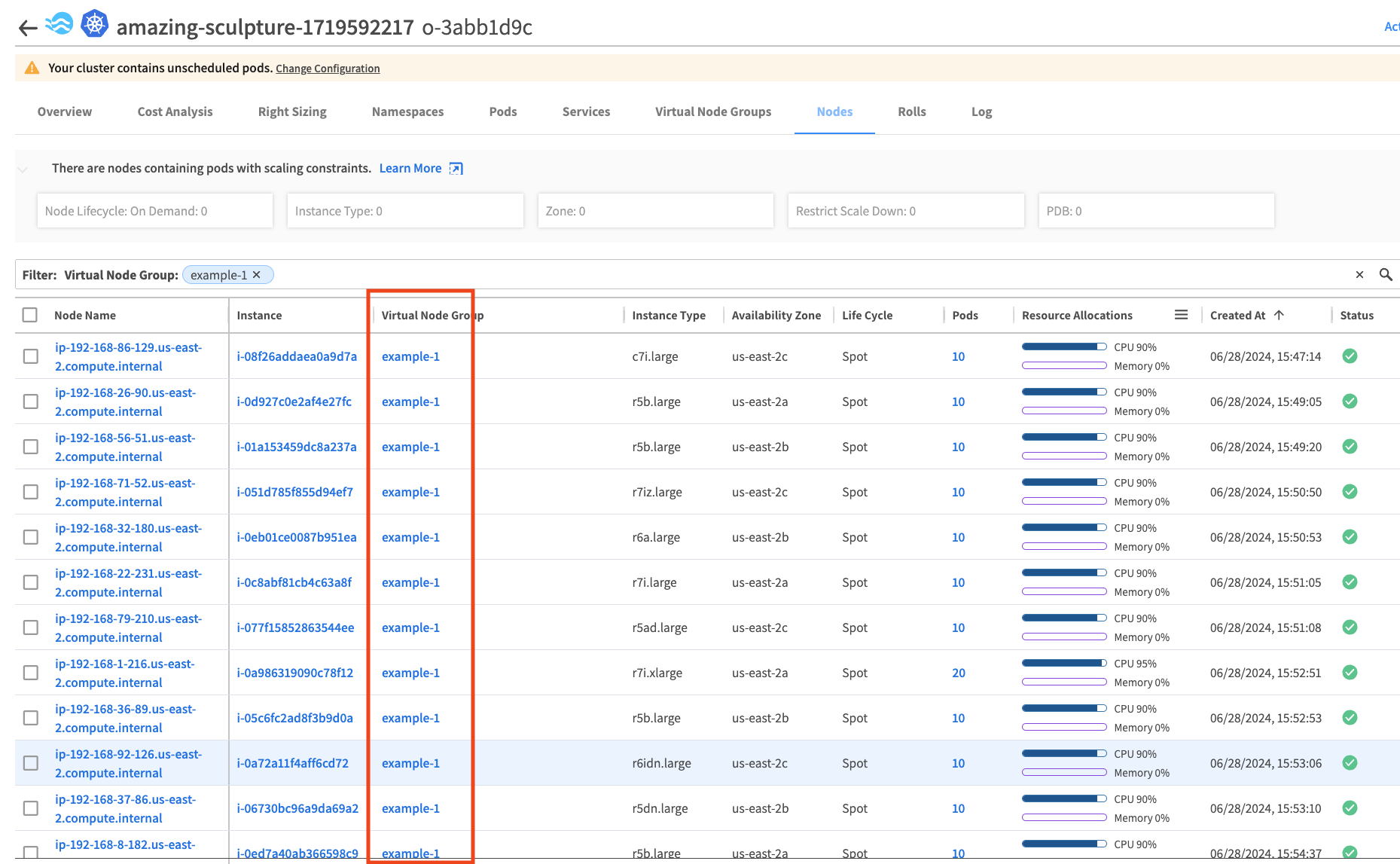Spot Workshop > Spot Ocean for AWS Workshop > Ocean Workshop > Handling Progressive Load > Progressive Load Lab
Progressive Load Lab
Make sure you gave enough time for Busyboxes to generate the load.
Verify the status of the deployment and the Horizontal Pod Autoscaler by running the following command:
kubectl get deployment php-apache -n autoscale-test
➜ kubectl get deployment php-apache -n autoscale-test
NAME READY UP-TO-DATE AVAILABLE AGE
php-apache 45/84 84 45 33m
➜ kubectl get hpa -n autoscale-test
NAME REFERENCE TARGETS MINPODS MAXPODS REPLICAS AGE
php-apache Deployment/php-apache 108%/40% 1 100 84 28m
Review the changes that happened to the cluster in spot UI. You can see that most of the VM’s were deployed by our Example-1 VNG and as busy box is generating cpu load all our VM’s are highly utilized.

At this point you succesfully simulated a production cluster where your application is scaling according to the load. The load is beeing generated by Busybox to simulate users and Ocean is handling all the underlying infrastructure Scaling.
Do not forget to visit the “Cleanup” section to stop the Busyboxes from generating additional load after you finished with this lab.